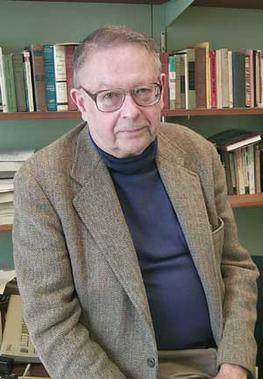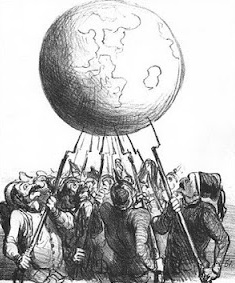Neorealism or structural realism is a theory of international relations that emphasizes the role of power politics in international relations, sees competition and conflict as enduring features and sees limited potential for cooperation. The anarchic state of the international system means that states cannot be certain of other states' intentions and their security, thus prompting them to engage in power politics.

International relations (IR) are the interactions among sovereign states. The scientific study of those interactions is also referred to as international studies, international politics, or international affairs. In a broader sense, the study of IR, in addition to multilateral relations, concerns all activities among states—such as war, diplomacy, trade, and foreign policy—as well as relations with and among other international actors, such as intergovernmental organizations (IGOs), international nongovernmental organizations (INGOs), international legal bodies, and multinational corporations (MNCs). There are several schools of thought within IR, of which the most prominent are realism, liberalism and constructivism.
International relations theory is the study of international relations (IR) from a theoretical perspective. It seeks to explain behaviors and outcomes in international politics. The four most prominent schools of thought are realism, liberalism, constructivism, and rational choice. Whereas realism and liberalism make broad and specific predictions about international relations, constructivism and rational choice are methodological approaches that focus on certain types of social explanation for phenomena.
Bandwagoning in international relations occurs when a state aligns with a stronger, adversarial power and concedes that the stronger adversary-turned-partner disproportionately gains in the spoils they conquer together. Bandwagoning, therefore, is a strategy employed by states that find themselves in a weak position. The logic stipulates that an outgunned, weaker state should align itself with a stronger adversary because the latter can take what it wants by force anyway. Thucydides' famous dictum that "the strong do what they can and the weak suffer what they must" captures the essence of bandwagoning.

Kenneth Neal Waltz was an American political scientist who was a member of the faculty at both the University of California, Berkeley and Columbia University and one of the most prominent scholars in the field of international relations. He was a veteran of both World War II and the Korean War.
In international relations, the security dilemma is when the increase in one state's security leads other states to fear for their own security. Consequently, security-increasing measures can lead to tensions, escalation or conflict with one or more other parties, producing an outcome which no party truly desires; a political instance of the prisoner's dilemma.

International security is a term which refers to the measures taken by states and international organizations, such as the United Nations, European Union, and others, to ensure mutual survival and safety. These measures include military action and diplomatic agreements such as treaties and conventions. International and national security are invariably linked. International security is national security or state security in the global arena.

Realism, a school of thought in international relations theory, is a theoretical framework that views world politics as an enduring competition among self-interested states vying for power and positioning within an anarchic global system devoid of a centralized authority. It centers on states as rational primary actors navigating a system shaped by power politics, national interest, and a pursuit of security and self-preservation.
Offensive realism is a structural theory in international relations that belongs to the neorealist school of thought and was put forward by the political scholar John Mearsheimer in response to defensive realism. Offensive realism holds that the anarchic nature of the international system is responsible for the promotion of aggressive state behavior in international politics. The theory fundamentally differs from defensive realism by depicting great powers as power-maximizing revisionists privileging buck-passing and self-promotion over balancing strategies in their consistent aim to dominate the international system. The theory brings important alternative contributions for the study and understanding of international relations but remains the subject of criticism.
Robert Gilpin was an American political scientist. He was Professor of Politics and International Affairs at the Woodrow Wilson School of Public and International Affairs at Princeton University where he held the Eisenhower professorship.
In international relations theory, the concept of anarchy is the idea that the world lacks any supreme authority or sovereignty. In an anarchic state, there is no hierarchically superior, coercive power that can resolve disputes, enforce law, or order the system of international politics. In international relations, anarchy is widely accepted as the starting point for international relations theory.

The balance of power theory in international relations suggests that states may secure their survival by preventing any one state from gaining enough military power to dominate all others. If one state becomes much stronger, the theory predicts it will take advantage of its weaker neighbors, thereby driving them to unite in a defensive coalition. Some realists maintain that a balance-of-power system is more stable than one with a dominant state, as aggression is unprofitable when there is equilibrium of power between rival coalitions.
Defensive neorealism is a structural theory in international relations that is derived from the school of neorealism. The theory finds its foundation in the political scientist Kenneth Waltz's Theory of International Politics in which Waltz argues that the anarchical structure of the international system encourages states to maintain moderate and reserved policies to attain national security. In contrast, offensive realism assumes that states seek to maximize their power and influence to achieve security through domination and hegemony. Defensive neorealism asserts that aggressive expansion as promoted by offensive neorealists upsets the tendency of states to conform to the balance of power theory, thereby decreasing the primary objective of the state, which they argue to be the ensuring of its security. Defensive realism denies neither the reality of interstate conflict or that incentives for state expansion exist, but it contends that those incentives are sporadic, rather than endemic. Defensive neorealism points towards "structural modifiers," such as the security dilemma and geography, and elite beliefs and perceptions to explain the outbreak of conflict.

Yan Xuetong is a Chinese political scientist and serves as a distinguished professor and dean of the Institute of International Relations at Tsinghua University. Yan is one of the major Chinese figures in the study of international relations (IR). He is the founder of 'moral realism', a neoclassical realist theoretical paradigm in IR theory. His moral realist theory is based on political determinism.
Neoclassical realism is a theory of international relations and an approach to foreign policy analysis. Initially coined by Gideon Rose in a 1998 World Politics review article, it is a combination of classical realist and neorealist – particularly defensive realist – theories.

Classical realism is an international relations theory from the realist school of thought. Realism makes the following assumptions: states are the main actors in the international relations system, there is no supranational international authority, states act in their own self-interest, and states want power for self-preservation. Classical realism differs from other forms of realism in that it places specific emphasis on human nature and domestic politics as the key factor in explaining state behavior and the causes of inter-state conflict. Classical realist theory adopts a pessimistic view of human nature and argues that humans are not inherently benevolent but instead they are self-interested and act out of fear or aggression. Furthermore, it emphasizes that this human nature is reflected by states in international politics due to international anarchy.
Charles Louis Glaser is a scholar of international relations theory, known for his work on defensive realism, as well as nuclear strategy and U.S. policy toward China. He is a Senior Fellow in the Security Studies Program at MIT and an Emeritus Professor of Political Science and International Affairs at George Washington. He was the founding director of the Institute for Security and Conflict Studies at the George Washington University's Elliott School of International Affairs, as well as a professor of political science and international affairs. His best-known book, Rational Theory of International Politics: The Logic of Competition and Cooperation received an Honorable Mention for 2011 Best Book from the International Security Studies Section of the International Studies Association.

Thomas J. Christensen is an American political scientist. He is the James T. Shotwell Professor of International Relations at the School of International and Public Affairs, Columbia University.
Norrin M. Ripsman is a Canadian political scientist whose research mainly examines security, regional peacemaking, and neoclassical realism. Before 2016, he taught at Concordia University, Quebec, Canada. Since 2016, he has been Monroe J. Rathbone Professor in the International Relations Department at Lehigh University, Pennsylvania, US.
Jeffrey W. Taliaferro is an American political scientist and international relations scholar. He is a professor of political science at Tufts University. His teaching and research focus on security studies and international relations theory.








